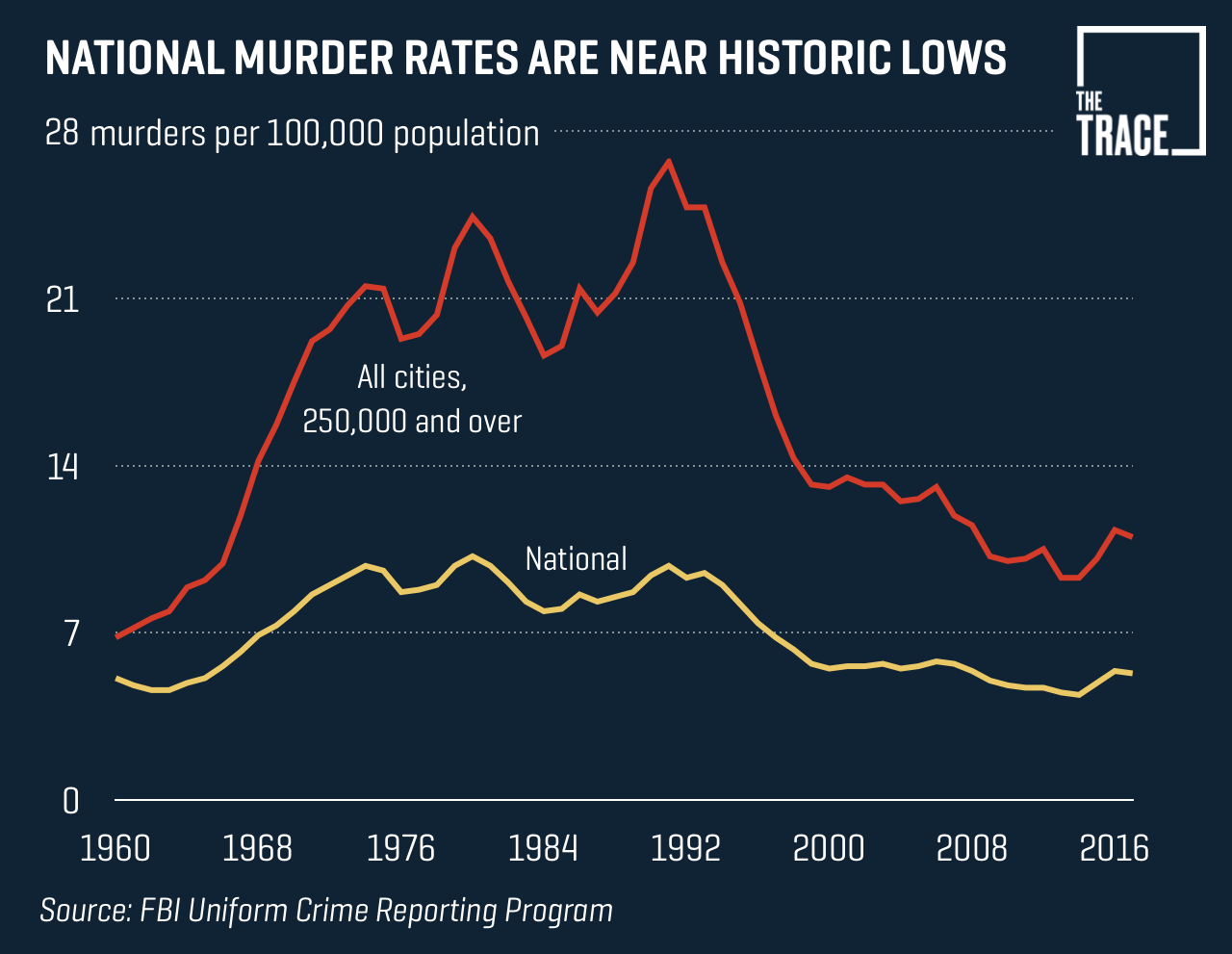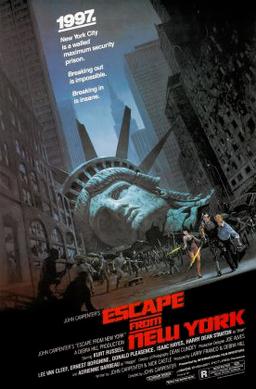True, but that environment doesn't seem to map very well to the average first world country, or even an atypical first world country like Japan, all of which have declining birth rates (not just slower population growth, actually shrinkage), which for the mice happened after their entire society collapsed. In the US, the birth rate has slowly declined since the baby boom, with the last peak in the early 90s. And say what you will about the 90s, but it certainly wasn't a total social collapse.
Well, the US isn't one city. So, duh it doesn't follow the mouse Utopia exactly. People can also notice decline, and do something about it. For example, look at US crime rate:
If you looked at Crime rate and extrapolated a trend line from, say, 1960 to 1970, you'd be looking at something that would look apocalyptic, well, at least for cities. Certainly, one would not look at major urban areas in 1970 and think you were looking at a healthy society. The cities themselves were suffering dramatic population collapses in the 70s as well:
New York city lost 10% of its population,
Detroit lost 20% its population,
Chicago lost 10%, excetera.
Every city in the top 10 largest cities of 1970 which wasn't in Texas or Los Angeles suffered huge, 10-20% population declines.
By 70s trend lines, by 2000 you would expect the murder rate in a big city to be 50 per 100,000, and the population of New York City to have shrunk by 30%. However, humans aren't mice and can, well, generally predict the future in a basic way and try to do something about it. "Law and Order" became the election theme of every major presidential candidate from Nixon onward. New York bits its tongue and elected its first full blown republican Mayor since the Depression with Gilliani because they decided they didn't like their city being associated with slums, crushing poverty, and a generally awful helscape people escaped from.
(New York being a distopiatic hell hole by 1997 was a bit more plausible in 1980 than it is now, but only in large part because new york decided it didn't want to be a distopiatic hell hole: places like Detroit for example proved incapable of resisting their decline).
The other big take away from the graph above, beside humans being able to chose to change the direction of things, is that relatively few have lived in Mouse Utopia like conditions, at least in the US, as a share of overall population: for example, looking at the 1970s
census data, there were about 200 million people in the US. Cities there were 56 cities with over 250,000 people in them. As a rough eyeball gestimate, without adding them all up, it seems a reasonable estimate that about 50 million people lived in those cities in 1970, before the massive population declines of that decade in many of the larger ones.
Thus, only about 25% of the population even lived in "big" cities. Counting just the 10 biggest cities in the US in 1970, they collectively had 22 million, or about 11% of the population. If you knock off the more sprawling cities, like Dallas, and focus only on "dense" cities, your down to about 10 million people, or about 5% of the population.
So, in the 70s, full fledged mouse utopia conditions applied to maybe 5-10% of the population, and even there people weren't literally imprisoned in New York or Chicago, considering the shear number that left. The world so far has been big enough to allow people to escape from such an unhealthy area most of the time, instead of just fully degenerating. And the areas of degeneration when urban areas decay has been relatively limited enough historically that, say, New Yorkers going crazy in the 70s doesn't pull the whole nation into crazyness. New York can self destruct without destroying the nation.
Does that make sense?


